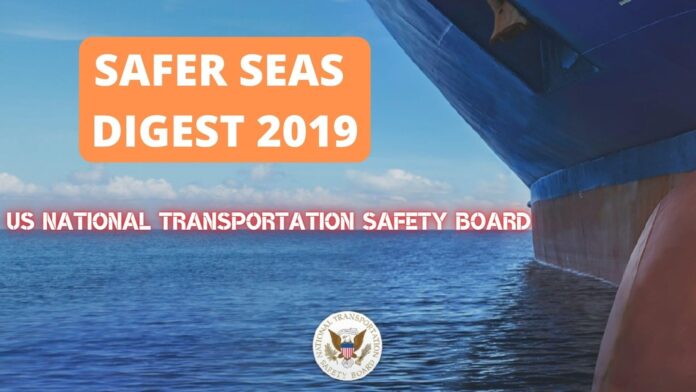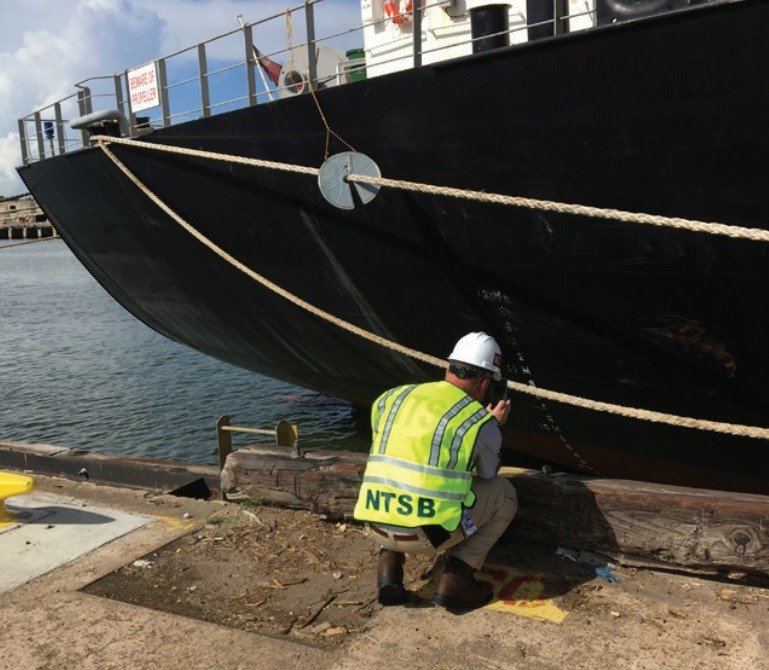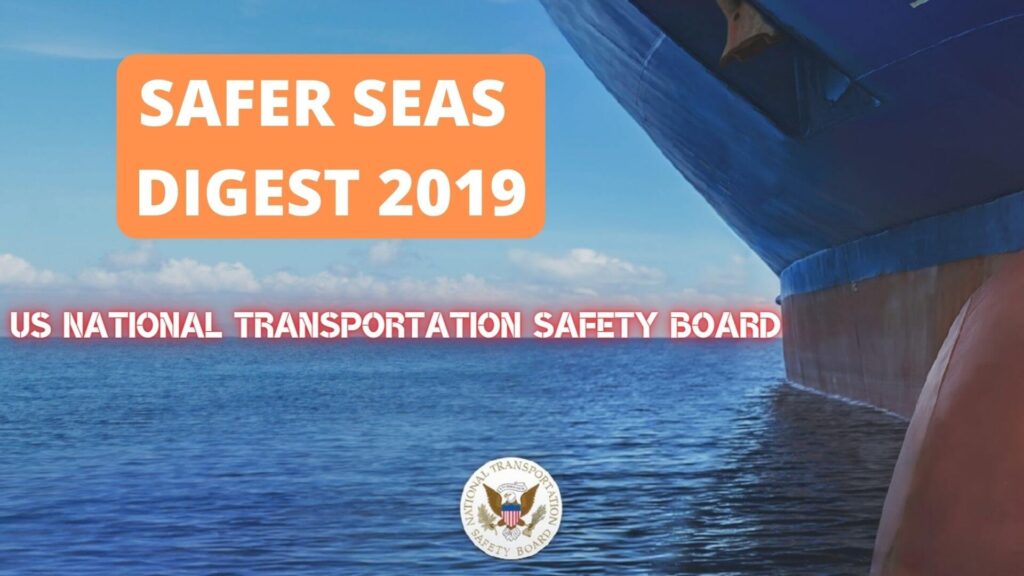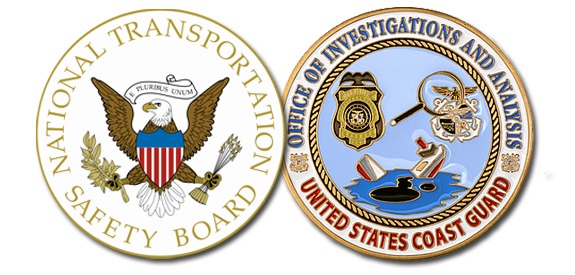
(www.MaritimeCyprus.com) The US National Transportation Safety Board (NTSB) published its Safer Seas Digest 2019, providing lessons learned from marine casualty investigations.
The department determines the probable cause of the accidents and issues safety recommendations aimed at preventing future accidents. In addition, the NTSB carries out special studies concerning transportation safety and coordinates the resources of the federal government and other organizations to provide assistance to victims and their family members impacted by major transportation disasters.
The 30 marine accidents included in Safer Seas Digest 2019 involved contact with fixed objects, breakaways, sinkings, collisions, fires, explosions, floodings, groundings, and other vessel damage. The vessels ranged from personal craft to oceangoing passenger ships and even a US Navy destroyer. The accidents recounted here resulted in numerous injuries and significant property damage, and worst of all, the loss of thirty-two crew members and passengers.
This digest is organized around NTSB investigations that came to a close in 2019. They represent a snapshot within the ongoing cycle of accidents, NTSB investigations, and safety improvements that ensures that lessons learned result in changes. In recent years, the loss of the cargo vessel El Faro resulted in sweeping recommendations, especially to oceangoing shipping.

Readers might recall that 17 of those lost were on a recreational trip aboard the amphibious vessel Stretch Duck 7. Another 10 of the mariners lost were sailors serving aboard the USS John S McCain when it collided with the tanker Alnic MC.
Accidents do not respect their victims’ occupations or, for that matter, their leisure activities. Whether serving in the nation’s armed forces, enjoying a recreational tour, fishing on a trawler, or keeping commodities flowing on tankers and freighters, we
are all reliant on the safety measures that must be in place before we step aboard. The NTSB learns the safety lessons from these accidents and recommends safety improvements to prevent recurrences. It is up to the marine industry and its regulators in the Coast Guard to act on these recommendations to improve marine safety.
The safety issues examined in the 2019 edition of Safer Seas include:
- Organizational Oversight
- Fatigue
- Master/Pilot Exchange
- Proper Navigation
- Dynamic Risk Assessment
- Proper Lookout
- Early Communication Prior to and During Emergency Situations
- Heavy Weather Conditions
- Seafloor Hazards in Undersea Operations
- Effective Hull and Structural Component Inspection & Maintenance
- Watertight Integrity and Subdivision
- Fire Protection During Hot Work
- Securing Ventilation and Openings During a Fire
- Remote Fuel Oil and Lube Oil Cut-Off Valves
- Labeling of Alarms
For more details, click on below image to download full report:
For more Marine Accident Investigation Reports, click here.
Source: NTSB















